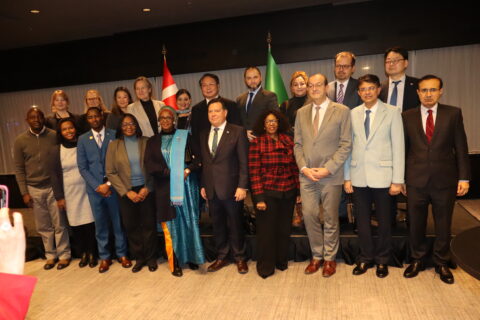Trade and Investments
Trade and Investments in Tanzania
Tanzania offers abundant natural resources and a range of investment opportunities. To attract global investors, the government has simplified its investment regulations, with the Tanzania Investment Centre (TIC) serving as the central agency for investment matters. For detailed insights, download the Tanzania Investment Guide.
Roles of the Tanzania Investment Centre (TIC)
- Promotes investment across various sectors within Tanzania.
- Resolves administrative barriers faced by local and international investors.
- Supports the establishment, registration, and setup of new businesses.
- Assists investors in obtaining licenses, permits, visas, approvals, and essential services.
- Provides sites for investment, including Export Processing Zone (EPZ) projects in agriculture, mining, infrastructure, fisheries, and tourism.
- Issues Certificates of Incentives and investment guarantees for foreign investments above $500,000 and local investments over $100,000.
- Supplies up-to-date information on investment opportunities, benefits, and available incentives.
- Fosters collaboration between investors and key organizations like the Tanzania Chamber of Commerce, Industry, and Agriculture (TCCIA), Tanzania National Business Council (TNBC), and Tanzania Private Sector Foundation (TPSF).
For the latest updates on business and investment in Tanzania, visit Tanzania Invest.
Tanzania’s Trade Sector
Trade is essential to Tanzania’s economic goals of poverty reduction and economic transformation, driven largely by the private sector. The country provides a well-rounded package of trade incentives, especially in manufacturing, agriculture, tourism, petroleum, gas, and mining. Capital goods and parts for these sectors enjoy zero-rated import duties or deferred VAT. Tax deductions apply for agricultural research, and capital acquisitions receive full deductions. Tanzania has signed double taxation treaties with countries such as Denmark, India, Italy, and Sweden.
Main Investment Sectors
Top sectors for investment include:
- Agriculture and Agro-industries
- Mining
- Petroleum and Gas
- Tourism
- Infrastructure
Investment Priority Sectors
Priority sectors are:
- Energy, Manufacturing, Agriculture, Chemical Industries
- Natural Resources (Fishing & Forestry)
- Construction and Real Estate Development
- Healthcare, Education, and Management Consultancy
- Broadcasting and Export-Oriented Projects
Trading Partners and Commercial Centers
Tanzania’s main trading partners include China, Germany, Japan, India, the European Union, the UAE, the UK, Kenya, and South Africa. Key commercial hubs are Dar es Salaam, Mwanza, Zanzibar, Arusha, Mbeya, Tanga, Kilimanjaro, and Kigoma.
Imports
Tanzania’s main imports consist of agricultural machinery, industrial raw materials, transportation equipment, petroleum products, construction materials, and consumer goods.
Exports
Principal exports include minerals (gold, gemstones, diamonds, coal), coffee, cotton, cashew nuts, tea, sisal, tobacco, pyrethrum, and organic spices. For business licenses, partnerships, and export procedures, contact relevant product boards and trade organizations such as the Tanzania Coffee Board, Tanzania Cashewnut Board, Tanzania Trade Development Authority, and Tanzania Chamber of Commerce, Agriculture, and Industries.
Floriculture Products
Specialized organic products, example cashew nuts
Trade and Investments
Blog Feed
Public holiday
The Consulate of the United Republic of Tanzania will be closed on the following dates:…
24 December 2025 0Tanzania 64th Independence day celebration in Denmark
Thank you for joining us in celebrating the 64th anniversary of Tanzania’s independence. We Tanzanian’s…
11 December 2025 0

